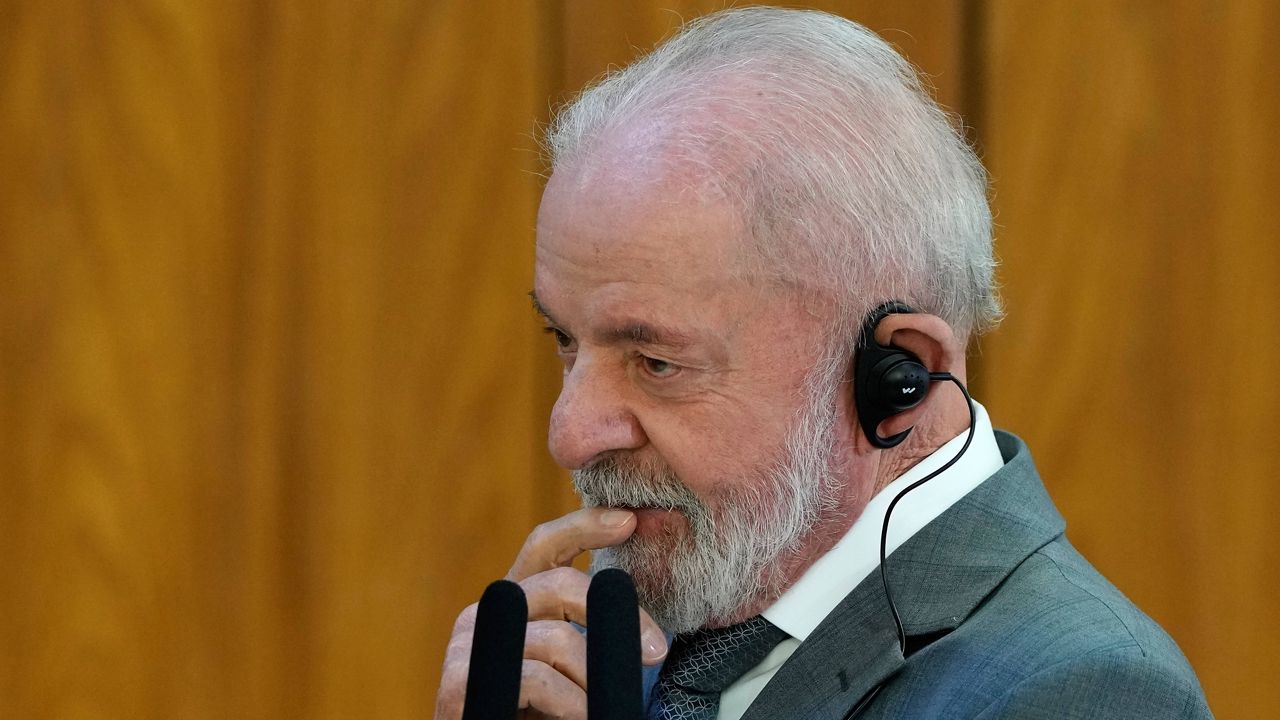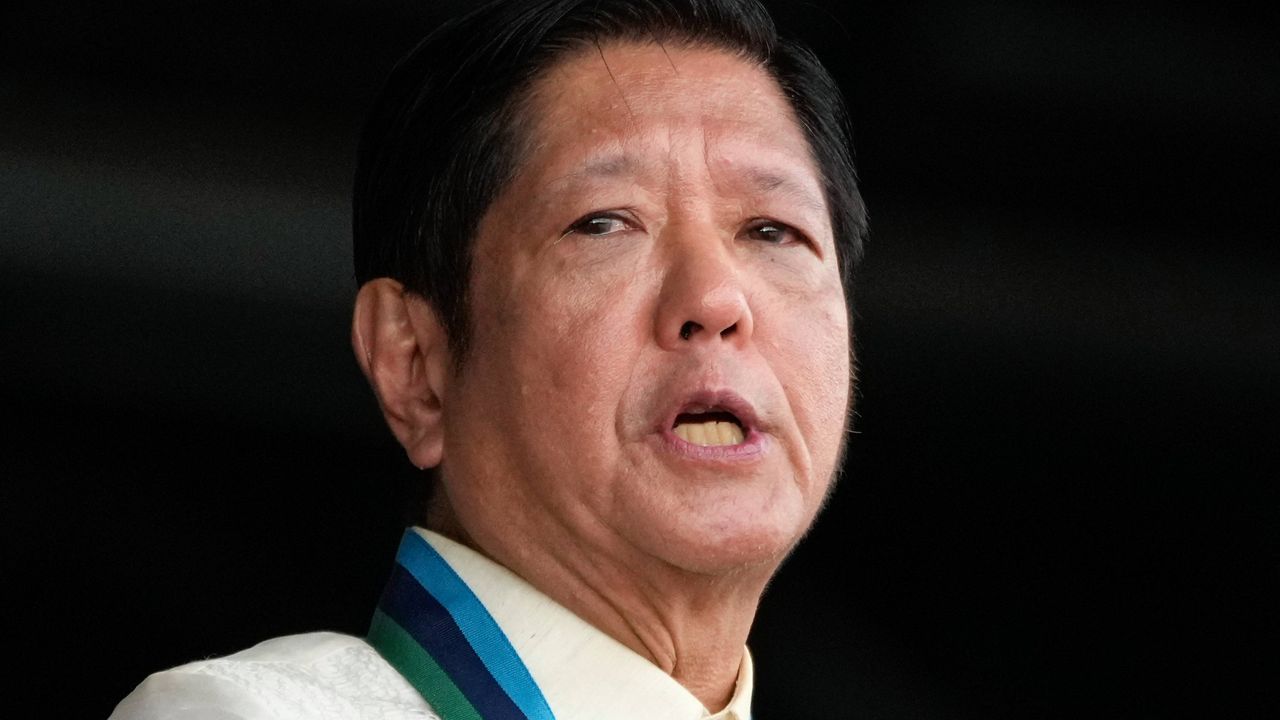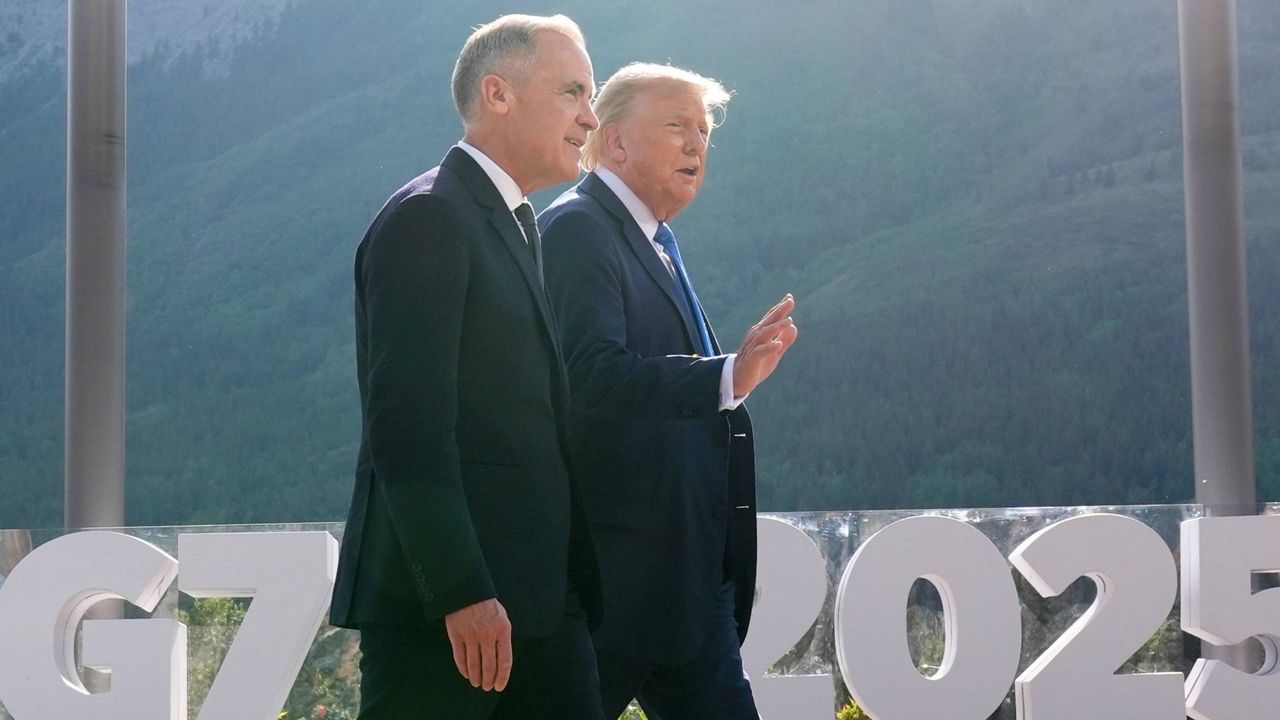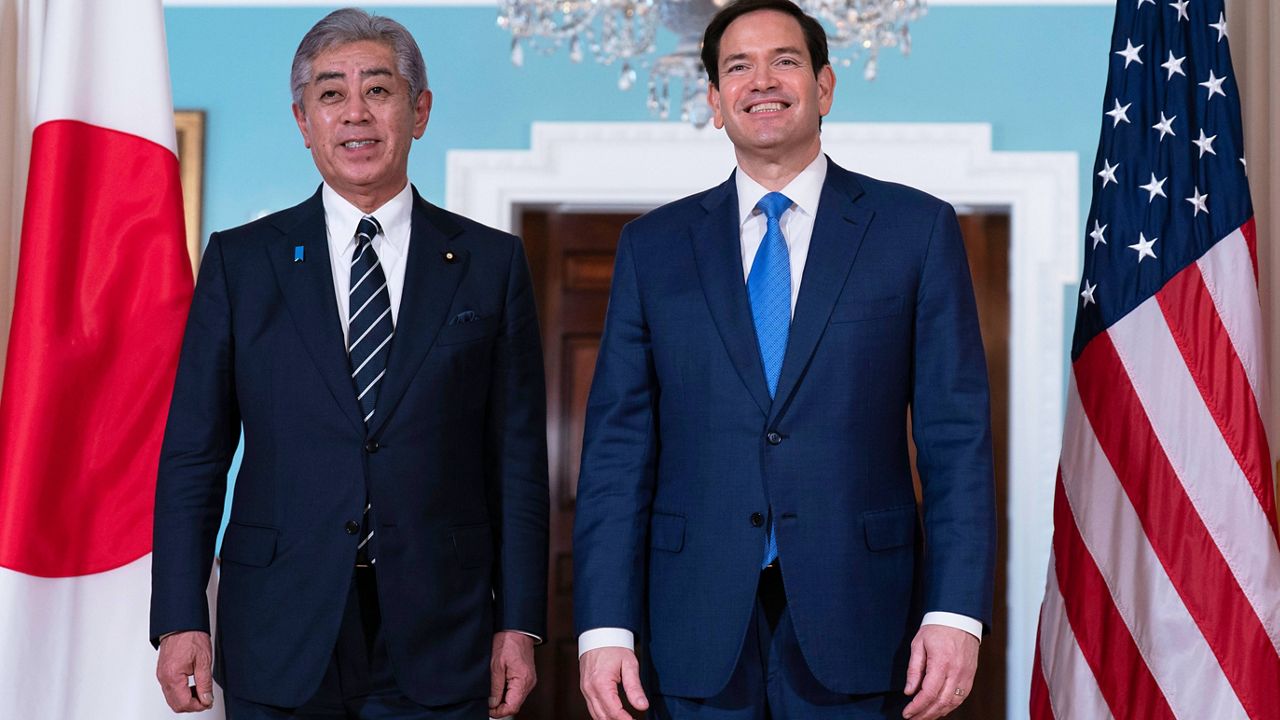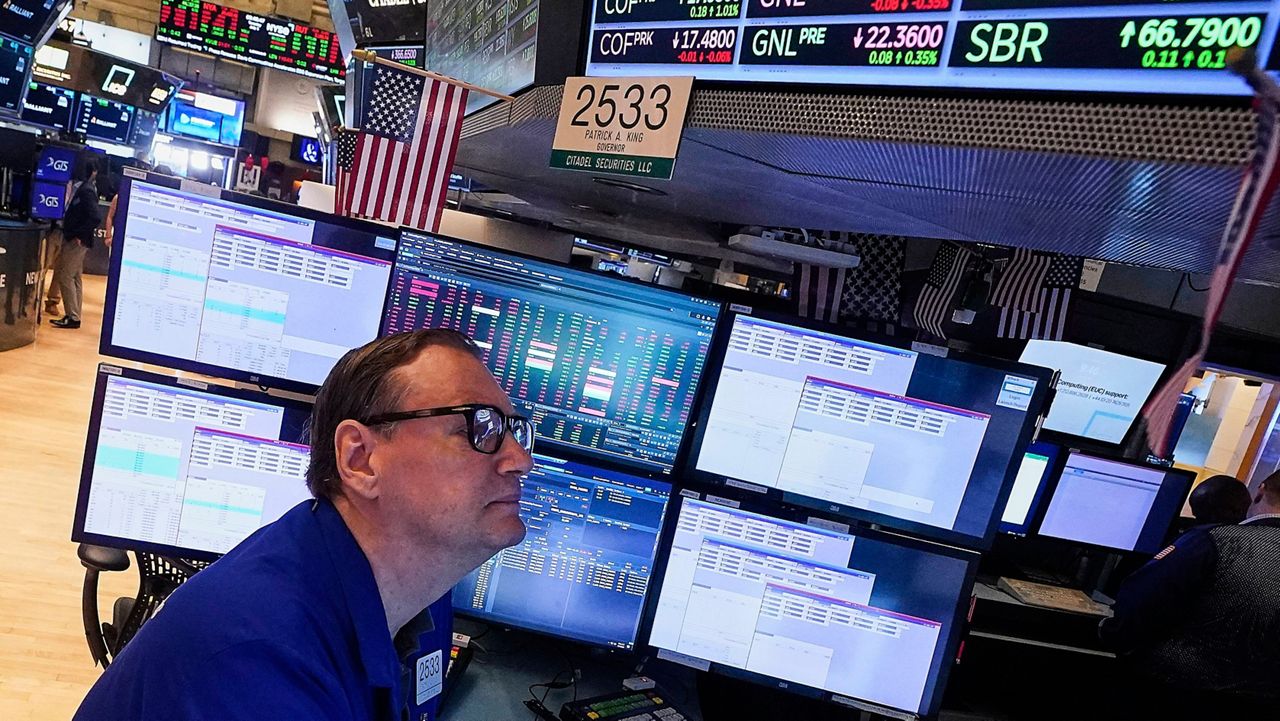SINTRA, Portugal –– Federal Reserve Chair Jerome Powell said Tuesday that his board likely would have lowered interest rates if President Donald Trump had not announced sweeping tariffs on imports from other countries earlier this year.
“In effect, we went on hold when we saw the size of the tariffs, and essentially all inflation forecasts for the United States went up materially as a consequence of the tariffs,” Powell told attendees of an economic conference in Portugal. “We didn’t overreact. In fact, we didn’t react at all. We are simply taking some time.”
Powell made the remarks as he joined fellow economic leaders from the European Union, Japan, South Korea and the United Kingdom for a panel discussion Tuesday at the European Central Bank's annual retreat in Sintra, Portugal.
The Fed chair said any effects of tariffs have not yet been apparent in economic data and that he will be monitoring the numbers closely in the coming months with the expectation of “higher readings” this summer.
“Ignore the tariffs for a second. Inflation is behaving pretty much exactly as we have expected and hoped that it would,” Powell said, noting that inflation in the U.S. was at about 2% and the unemployment rate was at about 4.2%. The Fed chair called the economy “healthy overall.”
When asked by the moderator if July was too soon to consider a rate cut –– barring a “real surprise” –– Powell said it would “depend on how the data evolve.” The Fed's next meeting is scheduled for July 29-30.
“We'll be monitoring particularly what does show up in terms of inflation or what does not show up and also carefully watching the labor market,” Powell said, later noting that a majority of Fed’s Board of Governors still foresee cutting interest rates later this year.
Powell has drawn the ire of Trump, who has repeatedly criticized the Fed chair and called on him to slash interest rates in the U.S., which presumably would reduce the amount of interest the country pays on its debt.
The Fed chair sets the key interest rate, which is the rate at which commercial banks borrow and lend their excess reserves to one another, and essentially acts as a benchmark for interest rates in other parts of the economy.
White House press secretary Karoline Leavitt said during a briefing Monday that Trump sent Powell a chart of the interest rates in other countries with a handwritten note, contending that by not lowering interest rates, Powell had “cost the USA a fortune.”
Commerce Secretary Howard Lutnick also posted a copy of the document on social media, saying Powell and the board “should be ashamed of themselves.”
Powell was asked about the president’s criticism and if the attacks made his job harder.
“I'm very focused on just doing my job. The things that matter are using our tools to achieve the goals that Congress has given us –– maximum employment, price stability, financial stability –– and that's what we focus on 100%,” Powell said to applause from fellow economic leaders.
The moderator then directed the following question to European Central Bank President Christine Lagarde, asking if she would do anything different if she were in Powell’s shoes.
“I think I speak for myself, but I speak for all colleagues on the panel: I think we would do exactly the same thing as our colleague Jay Powell does,” Lagarde said.
Later in the discussion, Lagarde spoke about her fears about the “watchdog of the integrity of data.”
“I'm getting more and more concerned about the role that artificial intelligence is going to play, about how distorted things can be presented and how public opinion can be manipulated,” she said.
Meanwhile, Powell said his own concerns are focused on leaving for his successor “an economy in good shape.”
The Fed chair has about 10 months left on his four-year term. Trump has recently begun musing publicly about naming a successor in advance of May 2026 –– after previously threatening to fire Powell earlier this year. Traditionally, a new chair is nominated a few months in advance of taking office.
During Tuesday's discussion, each economic official was asked by the moderator what advice they would give to their successors.
“We're trying to deliver macro stability, financial stability, economic stability for the benefit of all the people. If we're going to do that successfully, we need to do it in a completely nonpolitical way,” Powell said, declining to answer whether he planned to remain on the Federal Reserve’s Board of Governors once his term as chair ends.






